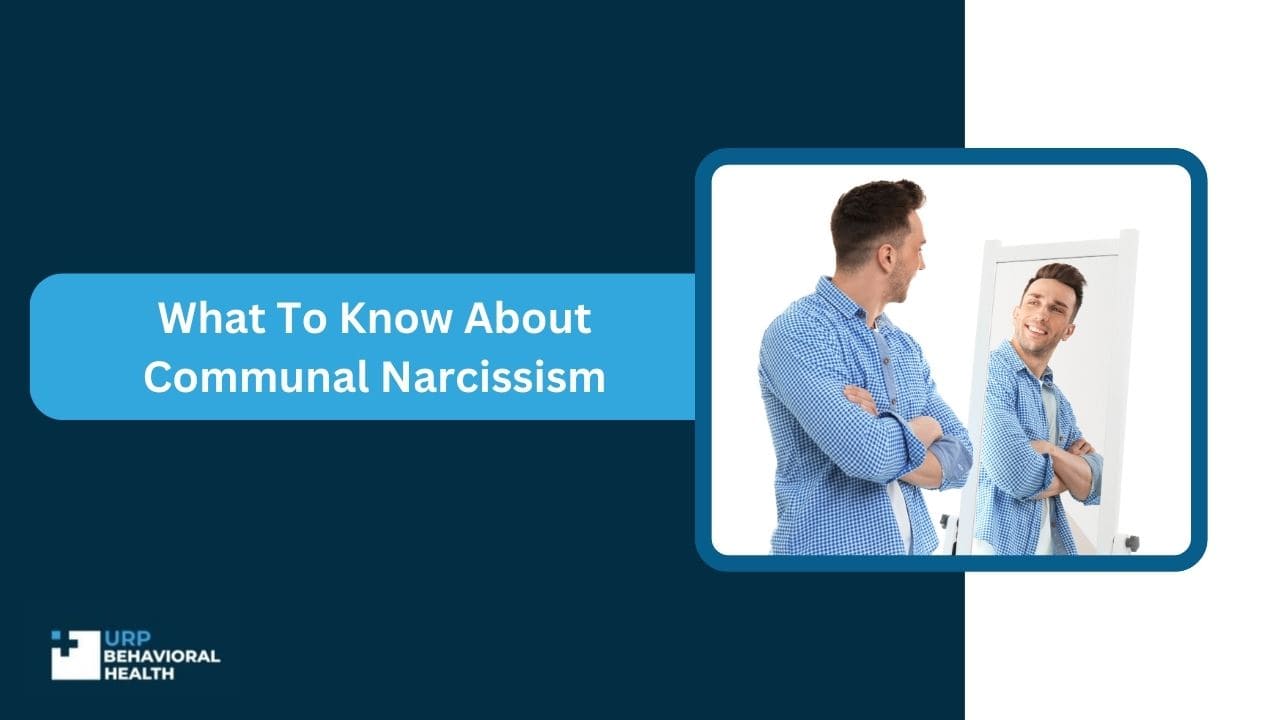
What To Know About Communal Narcissism
Studies on community samples show that the prevalence rate of narcissistic personality disorder among the US population is somewhere between 0.5 to 5 percent [1]. Experts are unsure of how common the condition really is. Unlike other disorders that can affect a person’s ability to function, narcissists rarely seek professional help. This makes it difficult to determine how prevalent the condition is. In fact, not all people with narcissistic traits meet the criteria for a diagnosis. Some forms of narcissism aren’t even recognized as a formal diagnosis, such as communal narcissism.
But what does this form of narcissism mean? And how is it different from typical notions of narcissistic behavior? Considering how communal narcissists can have a major impact on the people around them, it’s worth taking a deep dive into this personality type. Let’s look at different signs and examples of communal narcissism, what could potentially cause it, how you can deal with a communal narcissist and possible treatment options.

What is Communal Narcissism?
It’s a specific type of narcissism that occurs in community settings. Just as narcissists view themselves as superior, communal narcissists see themselves as highly altruistic and philanthropic. Experts define this form of narcissism as ‘communal’ because the person shows their narcissistic traits in community environments and social situations. In these settings, communal narcissists try to appear charitable and benevolent, trying to appear as caring members of the community.
How is it Different From Other Types of Narcissism?
A communal narcissist makes contributions to society to seek validation and admiration from others. So, what makes this type of narcissism unique?
In grandiose narcissism, you pursue the egotistical goals of dominance and achievement. A grandiose narcissist may think that they’re more intelligent and attractive than other people around them. But when you’re a communal narcissist, you fulfill egotistical goals through moralistic or communal pursuits.
That means you’ll engage in activities so you’re perceived as a moral or social leader in the community, or at the very least, a highly virtuous person. There’s evidence [2] that communal narcissists believe they’re the most generous and community-oriented, though others don’t see them the same way. Therefore, their belief of being charitable and altruistic isn’t necessarily based in reality – they may not be more compassionate than others but still consider themselves to be.
How Was Communal Narcissism Defined?
The concept of a different type of narcissism gained traction after researchers published a study on the topic in the Journal of Research in Personality [3]. The results of the study supported the idea that communal narcissism indicates an effort to gain praise from others without having a genuine concern for the community’s interests. It means that they feel good about themselves based on how they imagine others perceive them for their contributions.
It’s characterized by the same sense of grandiosity and entitlement that comes with typical narcissism. The distinguishing factor is that while a typical narcissist believes in their self-worth, a communal narcissist requires validation from others. Because of this, they behave in ways so others see them as people who are trying to help others.
Contact our admissions team now to begin your path toward a brighter future.

Signs of a Communal Narcissist
If you’re frequently involved in activities like volunteering and fundraising for different causes, you’re probably wondering if you’ve come across a communal narcissist. It can be hard to tell when a person is a communal narcissist. Initially, they may seem like a genuine and caring person. But when you spend more time with them, you’ll start to see a few signs that they possess narcissistic traits:
Taking All The Credit
As mentioned before, this type of narcissist is someone who wants to be seen as generous by the public. Because of this, they’ll try to take credit for every charitable act done for a specific cause. Let’s say there’s a community service project taking place, and they play a small role. In this case, they’ll want to take credit for these projects, even if they did little in organizing them. Communal narcissists see charity events as an opportunity to become the center of attention and attract praise from others.
Extreme Focus On Specific Causes
Instead of dedicating their time and resources to different causes, they only spend their energy on a specific charity. In fact, this excessive commitment causes them to neglect other responsibilities because feeling like a model citizen is a fundamental part of their self-image.
This makes them highly opportunistic: they may go to any lengths to seem as if they participated in a specific charity event or fundraiser. And because of their dedication to this cause, they have an inflated sense of self-importance – as if the cause would fail to meet its goals without them.
Constantly Seeking Validation
When a communal narcissist does something selfless, they need everyone around them to know. Someone with this type of personality sees no use in being kind and compassionate unless others can see it and praise them for being so selfless.
They’re driven to be validated and recognized by people around them, as well as on social media [4]. It’s not uncommon to find communal narcissists using social media to display their prosocial behavior and receive praise from others.
Selective Empathy
In trying to appear parasocial and altruistic, communal narcissists may choose to be empathetic towards certain marginalized groups, especially those who can validate them. On the other hand, they may see other groups as less deserving of their donations and attention. These are people who are less likely to enhance their reputation in the community.
Even when they do engage in selfless or altruistic actions, their behavior is driven by a need for admiration and recognition. So when they do volunteer, donate to a charity, or perform other seemingly selfless acts, they do it in a way that they’re recognized and praised for it.
Manipulative Behavior
Just like typical narcissists, communal narcissists engage in manipulative behavior. The difference is that they can hide behind a façade of generosity and modesty. They may use their reputation for being kind and compassionate to get others to do what they want. When questioned, they may gaslight the other person into feeling guilty.
Since communal narcissists create an entire persona around being charitable and genuine members of the community, it’s easier to victimize people. Even if those people do find the courage to speak up, it’s likely that others won’t believe them.
Belittling Others
A communal narcissist may feel as though no one else can be as good of a philanthropist, employee, or community member as they are. Because they think highly of themselves, they have unrealistic expectations from others. And when people fail to meet those expectations or live up to a certain standard, communal narcissists are quick to see them as inferior. A typical example is that they may scold those who don’t dedicate more time or donate more money to a specific cause.
Overestimating Their Knowledge and Contributions
Research shows that communal narcissists tend to overestimate their contributions [5] and communal knowledge, even if there’s no evidence for this. In fact, meta-analyses show that they have less communal knowledge [6] compared to people without communal narcissism.
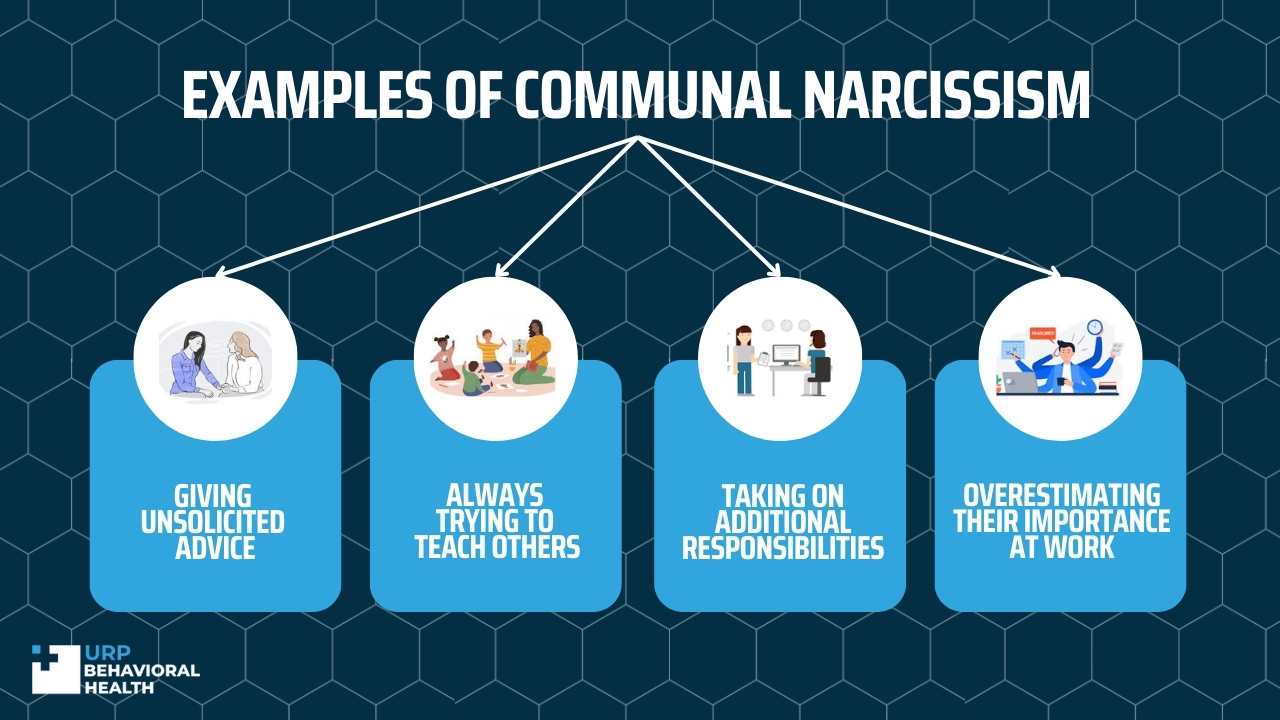
Examples Of Communal Narcissism
Communal narcissism can look different depending on the context and situation. Nevertheless, there are some examples of behaviors they can show while at work or while volunteering:
Giving Unsolicited Advice
When leading a support group, such as a group for people struggling with grief or going through a divorce, communal narcissists may give unsolicited advice to members. Instead of listening to other people’s stories, they may give advice to appear helpful.
Always Trying To Teach Others
If they’re volunteering at a sports event, like a community basketball game for charity, a communal narcissist may be overly eager to help. They’ll spend their time ‘helping’ others improve their technique instead of developing their own. Despite presenting themselves as dedicated to the team’s success, they don’t respond to advice or directions.
Taking On Additional Responsibilities
While volunteering at places like homeless shelters or soup kitchens, communal narcissists may try taking on additional responsibilities. This is to make it seem like they’re doing more work, even if they lack the necessary training to take on those tasks.
At events, they focus excessively on minute details to the extent that they no longer prioritize the mission. For instance, they pay attention to how much time, energy, and money people devote to the cause. For communal narcissists, admonishing or judging people for not doing more is an opportunity to talk about how much they contribute to the community.
Overestimating Their Importance At Work
At work, communal narcissists may try to appear helpful by doing other people’s tasks for them or showing them ‘how it’s done.’ This stems from a belief that the company would fail to get things done without them. As an extension of this belief, they may look down on colleagues who seem uninterested in the job or take time off.

How to Deal with a Communal Narcissist
Dealing with a communal narcissist, especially if they’re a close friend or family member, can be difficult and frustrating. Experts recommend learning about the concept and how it manifests in different situations. Being aware of how they think can help you navigate interactions and understand why they act the way they act.
Here are a few things to know when dealing with a communal narcissist:
Don’t Call Out Conflicting Behavior
As mentioned above, narcissists have a tendency to engage in contradictory behavior, like only caring for societal needs when they’re out in public. Though it seems like a good idea to challenge their beliefs in an attempt to change their behavior, this may end up backfiring.
Challenging their beliefs or criticizing their behavior usually results in narcissistic rage, which is an explosive outburst of aggression. They may also become defensive and use gaslighting techniques to justify their behavior. Therefore, it’s best to avoid saying anything.
Set Boundaries
Just like any other relationship, having boundaries is an effective way to deal with a communal narcissist. Setting parameters for your relationship means clearly stating what you will and won’t tolerate. For instance, you can say that you won’t work on projects together if they dismiss your ideas without any feedback. Similarly, you can say that you won’t engage in petty disputes if they hyper-fixate on unimportant details. Though it’s easy to give in to a narcissist’s demands, being firm and clear is the way to go. Mention what you’re willing to discuss and what matters aren’t up for discussion.
Stick To Your Values
When you work or volunteer in the same environment as a communal narcissist, it’s likely that they’ll tell you how to perform a certain task or feel about a specific cause. They may say that you’re not doing enough or don’t have what it takes, but remember that there are many ways to be passionate about a community. You can be dedicated to a job or care about a worthy cause in your own way, so there’s no need to sidestep your values to appease a narcissist.
Take Care of YourFself
It’s overwhelming and frustrating to deal with a communal narcissist, and over time, it can take a toll on your well-being. If you have a close relationship with someone who shows narcissistic traits, take the time to focus on your mental health.
This can include basic things like getting enough physical activity, ensuring balanced nutrition, and maintaining a consistent sleep schedule. However, it can also mean limiting your interactions with a person who shows narcissistic traits, as these can be quite draining.
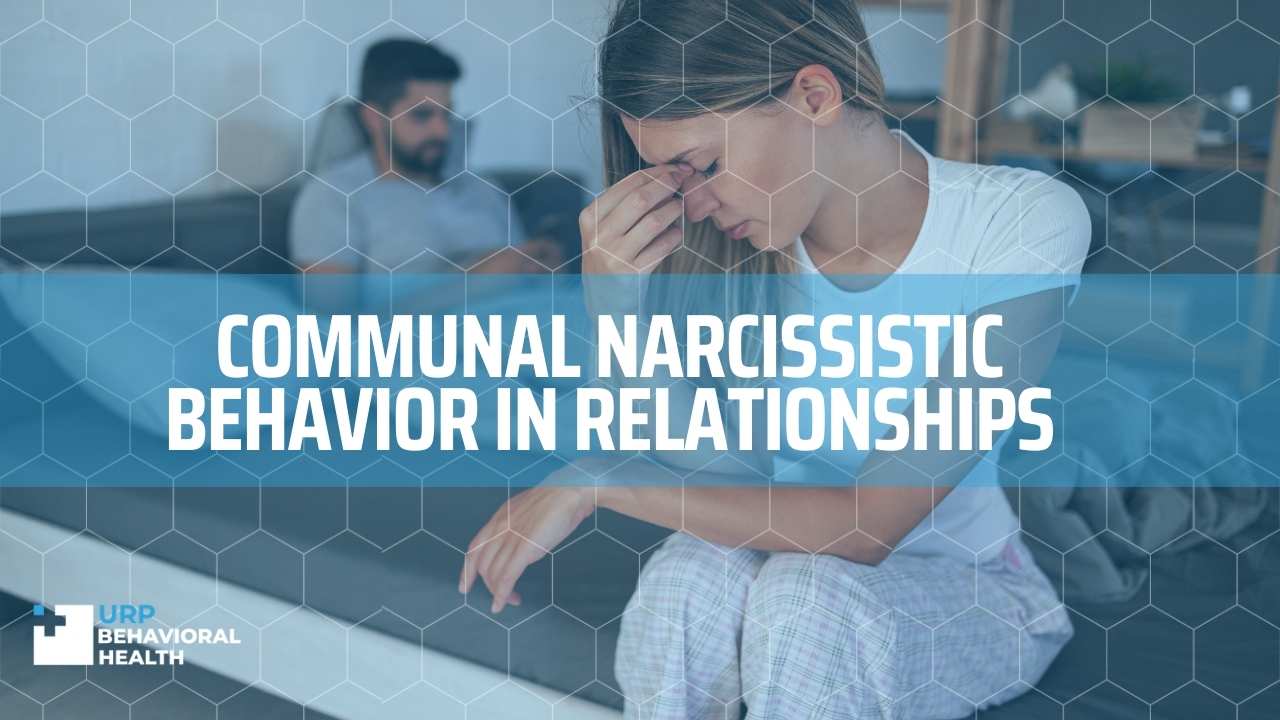
Communal Narcissistic Behavior in Relationships
You’d think that communal narcissists would have healthy relationships. After all, they engage in prosocial behavior and are dedicated to serving the community. Isn’t that the kind of compassion we seek in a friend, family member, or romantic partner? But keep in mind that their altruism is disingenuous and is only self-serving as it increases their self-esteem.
Considering that a communal narcissist may put up a false display of altruistic behavior, they may appear kind and generous in public but show indifference to loved ones in private. On a similar note, they can get so preoccupied with preserving their public image as a moral leader of the community that they neglect their significant other.
Moreover, communal narcissists can react with explosive outbursts when someone criticizes them or points out contradicting behavior. This puts their family members and significant other at risk of being victimized. Ultimately, any close relationship with a narcissist is difficult: they may seem kind and extroverted in public, but behind closed doors, they can be cold and self-centered. Having to deal with someone who appears completely different at home versus in public is a source of distress for loved ones.
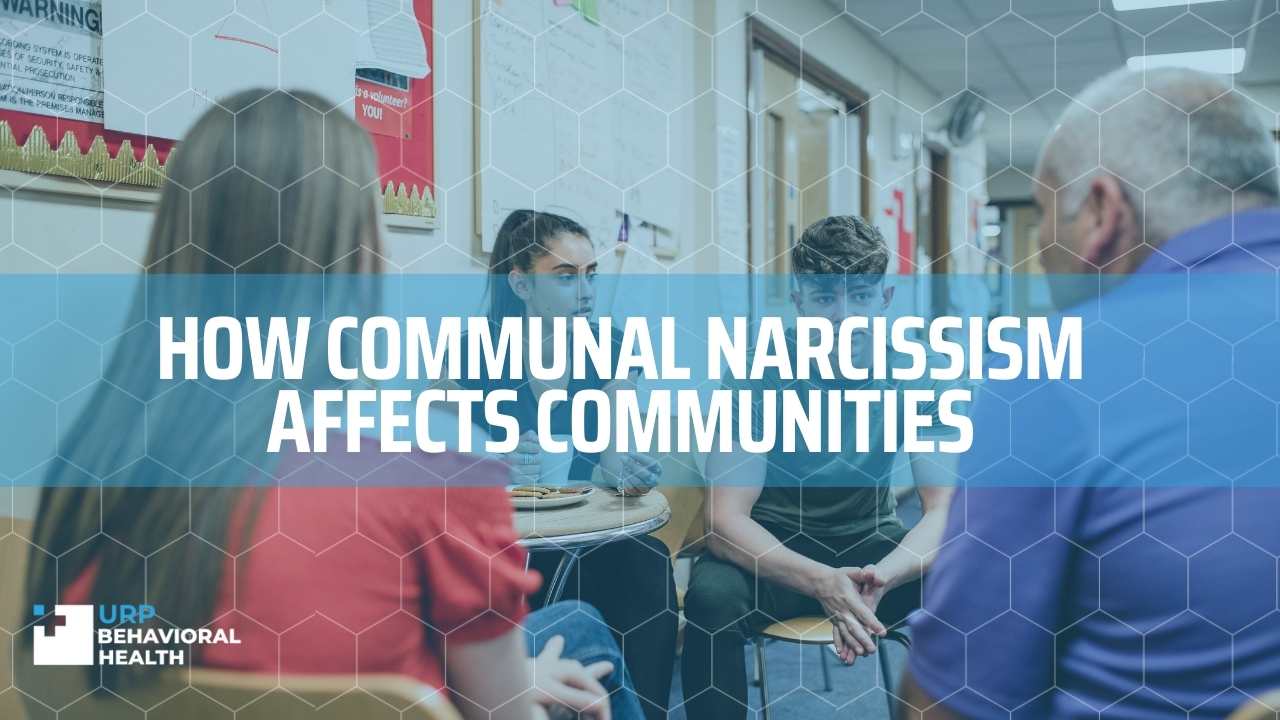
How Communal Narcissism Affects Communities
At the very least, communal narcissists are dedicated to a worthy cause, so the community stands to benefit, right? Well, not quite. Because the aim of their parasocial behavior is to maintain a self-image, they care little about whether their actions are having the desired effect.
When seemingly charitable actions and events don’t fulfill their perceived purpose of helping the community, it can lead to distrust. More specifically, marginalized groups may no longer trust people who are genuinely working for the betterment of their community.
What Causes Communal Narcissism?
Currently, experts are unsure as to what causes communal narcissism. But just like in any other condition, it’s not caused by one specific factor but rather by an interplay of different factors, such as:
- Genetics: a person may inherit certain traits that increase their risk of developing a narcissistic personality.
- Neurobiology: some studies point to a link between narcissistic traits and variations in prefrontal brain structure [7].
- Environment: researchers hypothesize that the development of pathological narcissism is linked to early relational experiences, such as parent-child relationships [8]. For instance, children whose parents overly praise or criticize them in proportion to their achievements face a risk of developing narcissism.
In addition to these factors, a growing body of research and literature points to the effects of social media on the development of communal narcissism. Researchers have found that different types of narcissism, including the communal type, are linked to SNS addiction. Similarly, communal narcissism is linked to a higher frequency of SNS usage [9], as it’s motivated by the need for appraisal and positive feedback for one’s prosocial actions.
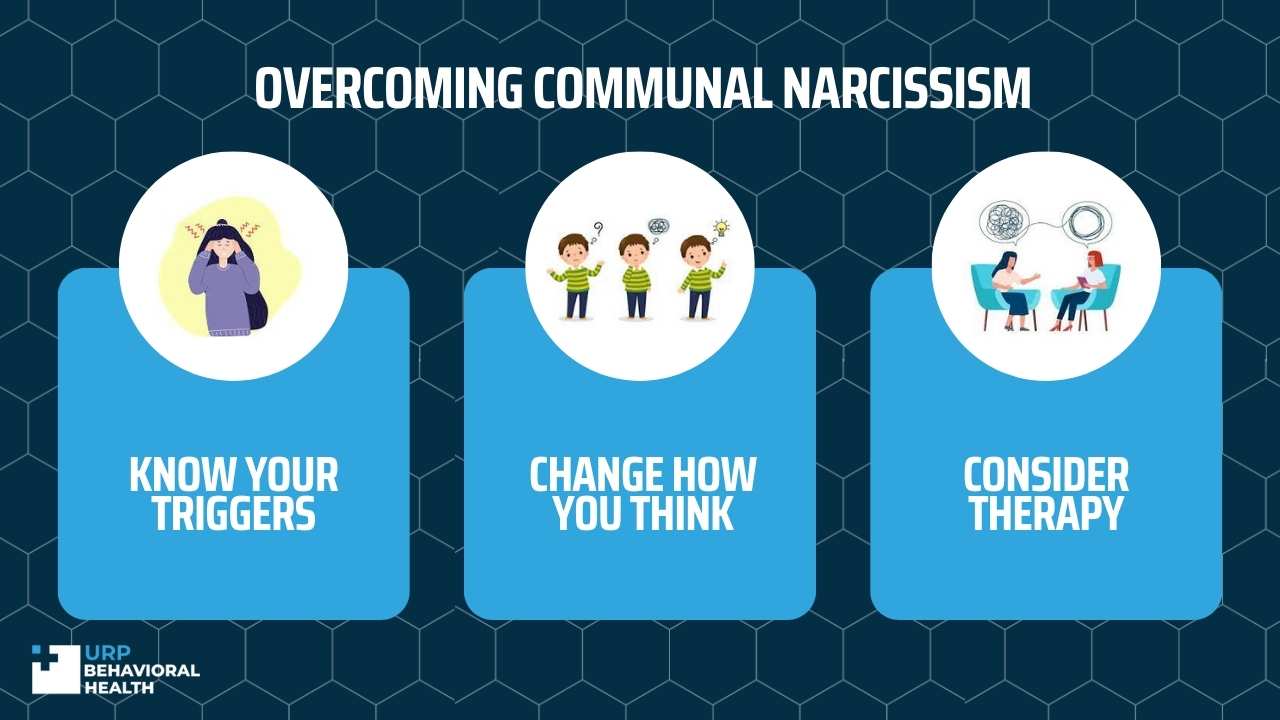
Overcoming Communal Narcissism
If you feel like the above-mentioned characteristics and traits apply to you, acknowledging the problem is the first step to overcoming it. Keep in mind that the underlying personality traits that make someone a narcissist are deeply ingrained, making it difficult to overcome communal narcissism.
Nonetheless, there are certain ways to gradually overcome communal narcissistic thoughts and behavior patterns.
Know Your Triggers
A trigger is an event, situation, or interaction that causes your narcissistic behavior. Perhaps you feel like you’re not in control or that your efforts aren’t appreciated. Experts recommend techniques like keeping a mood journal to track thoughts and events that immediately precede communal narcissistic behavior. Knowing your triggers can give you the awareness to control your narcissistic thoughts and subsequent behavior.
Change How You Think
Perhaps the most significant step in overcoming any form of narcissism involves changing how you think about yourself and others. It’s common for communal narcissism to place great value on how they’re viewed in the public sphere. However, constantly thinking about your public image can lead to narcissistic behavior that affects not only you but your loved ones.
Instead of acting out in an attempt to feed your narcissistic supply, question your need for validation and praise from others. This can help you understand and regulate your emotions, allowing you to respond accordingly.
Consider Therapy
Ultimately, changing narcissistic behaviors and thought patterns will require working with a therapist. Research indicates that psychotherapy [10] is the most effective means of addressing narcissistic behavior. Therapy can help you become aware of your tendencies and how they affect others.
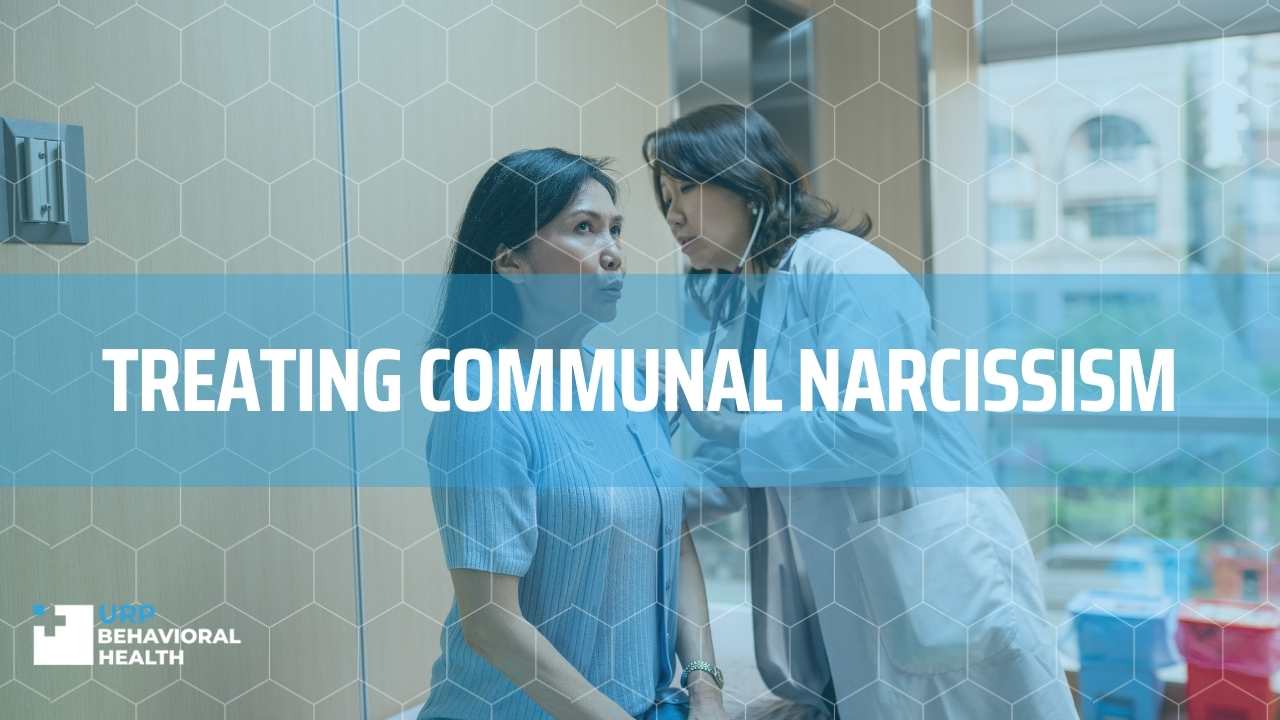
Treating Communal Narcissism
If a close friend or family member is showing narcissistic behavior, it can be a distressing experience. Although there are no FDA-approved treatments for narcissistic personality disorder, experts agree that therapy can lead to positive outcomes.
Individual Therapy
One-on-one therapy sessions provide an opportunity to talk about your actions and emotions with a licensed specialist. Therapists can provide a new perspective that helps narcissists understand the underlying thought processes causing their behavior.
Cognitive Behavioral Therapy (CBT)
In CBT, you’ll work with a licensed mental health practitioner to spot unhelpful thought patterns that contribute to communal narcissistic behavior. When you’re aware of how these thoughts are connected to your actions, you can start restructuring them.
Dialectical Behavior Therapy (DBT)
Another type of CBT, called dialectical behavior therapy [11], involves learning skills such as distress tolerance and emotional regulation. This form of therapy teaches you skills to understand and manage your narcissistic feelings in an adaptive manner.
Transference-Focused Psychotherapy
Research shows that transference-focused psychotherapy [12] is a promising treatment option for people with narcissistic personality disorder. In these sessions, you’ll transfer your feelings about a certain person, situation, or experience to your therapist. The purpose of this therapy is to understand the defensive processes that uphold your worldview, as well as your need for these processes.
EMDR Therapy
Studies indicate a possible link between narcissistic tendencies [13] and early childhood trauma. Eye movement desensitization and reprocessing allow you to process a traumatic event so that it no longer affects you. It does this by asking you to engage in bilateral stimulation, like guided eye movements, while discussing the event. With time, the memory of the event becomes less distressing.
Conclusion
While not recognized as a diagnosis, communal narcissism can have short and long-term impacts on the person’s well-being and that of their loved ones. Common signs of a communal narcissist include wanting to take all the credit for a certain event, constantly seeking validation, and being hyper-focused on a specific cause. You can deal with communal narcissists by setting boundaries, not calling out their behavior, and sticking to your values. Communal narcissism can have negative effects on relationships and cause trust issues in the broader community. Fortunately, treatment options like CBT, DBT, and transference-focused therapy can help change narcissistic tendencies.
Our team will verify your insurance and design a plan tailored to your needs.

References:
- An update on narcissistic personality disorder – PubMed. Link: https://pubmed.ncbi.nlm.nih.gov/23187086/
- Link: https://www.researchgate.net/publication/230664654_Communal_Narcissism
- Communal narcissism and positive implicit self-views in the communal domain – ScienceDirect. Link: https://www.sciencedirect.com/science/article/abs/pii/S009265661830148X
- Narcissism and Social Media: The Role of Communal Narcissism – PMC. Link: https://pmc.ncbi.nlm.nih.gov/articles/PMC8508105/
- Normal and pathological communal narcissism in relation to personality traits and values – ScienceDirect. Link: https://www.sciencedirect.com/science/article/abs/pii/S019188691830165X?via%3Dihub
- APA PsycNet. Link: https://psycnet.apa.org/doiLanding?doi=10.1037%2Fa0029629
- Narcissistic personality traits and prefrontal brain structure | Scientific Reports. Link: https://www.nature.com/articles/s41598-021-94920-z
- Healing the next generation: an adaptive agent model for the effects of parental narcissism – PMC. Link: https://pmc.ncbi.nlm.nih.gov/articles/PMC7925789/
- Which aspects of narcissism are related to Social Networking Sites addiction? – ScienceDirect. Link: https://www.sciencedirect.com/science/article/abs/pii/S0191886922000332
- Current understanding of narcissism and narcissistic personality disorder – Cambridge Core. Link: https://www.cambridge.org/core/journals/bjpsych-advances/article/current-understanding-of-narcissism-and-narcissistic-personality-disorder/4AA8B04FB352F8E00AA7988B63EBE973
- Borderline Personality Disorder and Emotion Dysregulation. Link: https://bpded.biomedcentral.com/articles/10.1186/s40479-016-0041-5
- Link: https://www.apa.org/pubs/journals/features/pap-pap0000145.pdf%E2%80%A8
- Codependence, narcissism, and childhood trauma – PubMed. Link: https://pubmed.ncbi.nlm.nih.gov/8801242/
















